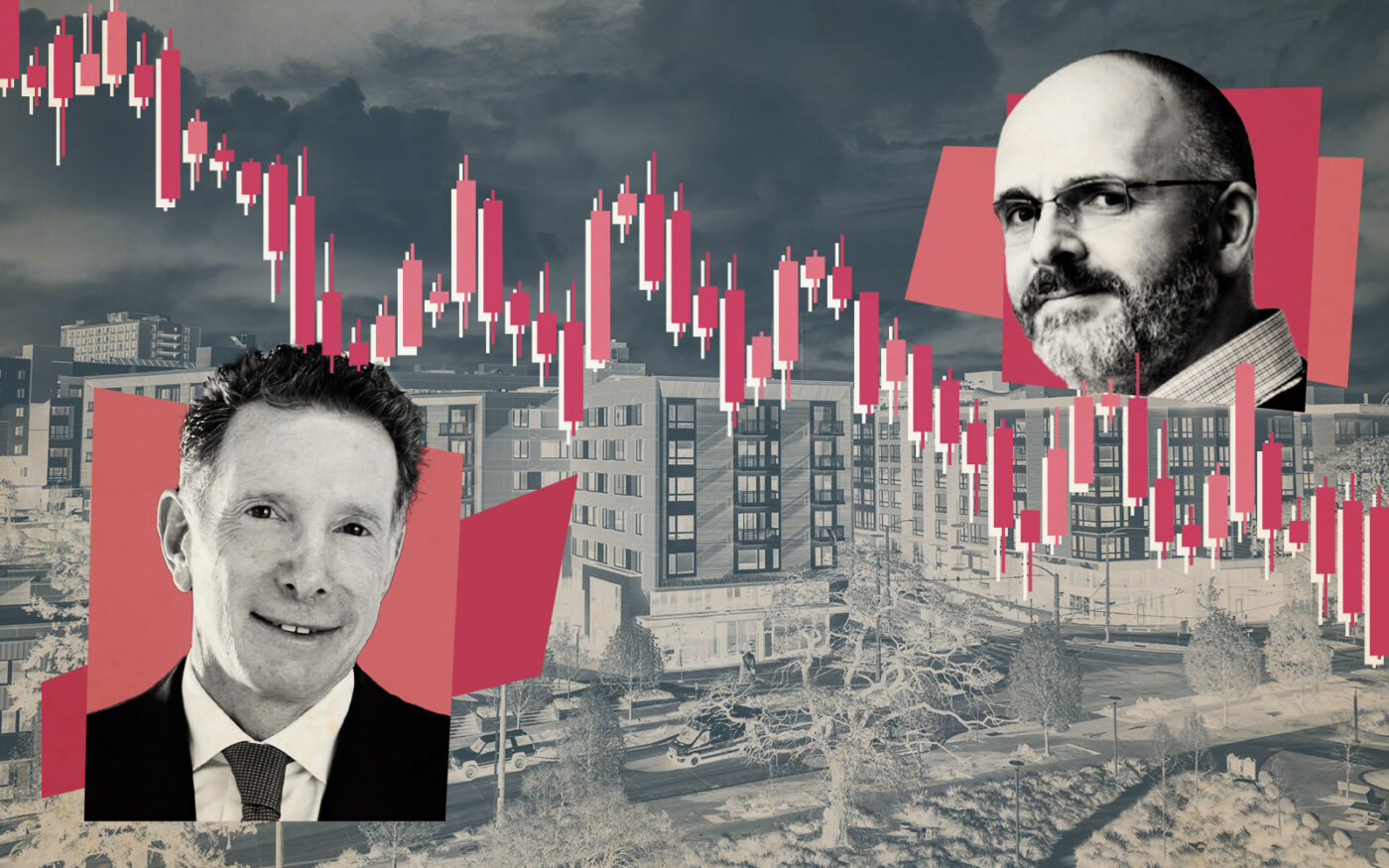Arbor Realty Trust’s share price plunged 8.7 percent on Thursday after a short-seller of the stock slammed the firm’s loan book and underwriting.
The swing wiped out the year-to-date gain in Arbor’s stock.
In its nearly 30-page report, Viceroy Research, which stands to profit from a drop in Arbor’s stock price, criticized the company’s reliance on making “high-risk” multifamily bridge loans — short-term, floating-rate debt.
Because Arbor gave out the majority of these loans in 2021, when interest rates were historically low, many of its borrowers have struggled to repay them as rates have soared. Valuations for these properties have simultaneously plummeted, in many cases to levels less than the debt tied to them.
Viceroy argued that Arbor is therefore vulnerable to a wave of defaults. The research firm said it analyzed hundreds of individual loans from Arbor that were packaged into collateralized loan obligations, which together total more than $7 billion.
Short-sellers make money by betting that a stock’s value will fall, and some publicly criticize the companies they target to help make that happen. Viceroy has been criticized itself, and in some cases fined by securities regulators, for publishing misleading or inaccurate reports that drove down stock prices. Short-sellers also face time pressure because they lose money when a stock they short does not drop fast enough.
Shares of Arbor Realty Trust opened at $13.14 on Thursday morning. By the close of trading the shares had fallen to $12.24, leaving Arbor with a market capitalization of $2.3 billion.
“There is no rate cut large enough, no rate caps cheap enough, and no investors dumb enough to save Arbor,” Viceroy said in its report.
Arbor did not respond to a request for comment, but some online commentators took Viceroy’s report with a grain of salt. One noted that a quarter of Arbor’s shares are being shorted, and that short-sellers “need to have the stock go down to keep from getting margin calls on their short position.”
The reader also noted that Viceroy issued its report on Arbor’s ex-dividend date, the day after holders of Arbor stock qualified to receive a 43-cents-per-share dividend. Share prices often drop on an ex-dividend date.
“The timing of the release … to augment the stock drop is a little too cute to me,” the reader posted.
One Arbor investor was miffed that the company did not respond to Viceroy’s report. “The longer they take, the longer the stock hit will go on,” the person commented on SeekingAlpha.
Most of Viceroy’s research is tied to Arbor’s collateralized loan obligations — its bread and butter product. A CLO, a pool of loans packaged into securities for investors, differs from commercial mortgage-backed securities in that the loans within CLOs are floating-rate and short-term. The product is particularly well-suited to multifamily buyers with renovation plans.
According to Viceroy’s analysis, a number of Arbor’s CLOs are already facing distress.
In one $759 million CLO pool, according to Viceroy, almost 70 percent of the loans have a debt service coverage ratio below 1, meaning the properties backing them are not generating enough cash flow to cover the debt payments. Seven in the pool are delinquent.
Investors in CLO securities are usually banks, mutual funds, pension funds, insurance firms and hedge funds, according to the Federal Reserve. Institutional investors generally only buy in the top-rated tranches.
But with CLOs, the original lender keeps a significant portion of the lower-tier tranches, a more junior stake.
“It can get paid the most if borrowers are non-delinquent, or nothing at all if delinquencies are high,” Viceroy said in its report.
If some of Arbor’s CLOs fall short of benchmarks — including a metric showing whether the loans are reeling in enough interest for investors — payments to Arbor could stop and be redirected to more senior bondholders.
Earlier this month, distributions to more junior bondholders in a CLO issued by Ready Capital stopped after delinquencies led the CLO to fail an interest-coverage test.
Arbor advises investors that it could record up to 20 percent of a loss on its loan book, according to its financial filings. Such warnings are required of public companies to warn investors of risks.
Arbor has $476 million in cash, but Viceroy claimed that would not be enough to cover losses, given “the current risk of delinquency and subsequent equity shortfall.”
Viceroy has published reports on almost 30 companies, most notably Wirecard, a now insolvent payment processor in Germany embroiled in a $2 billion fraud scandal.
